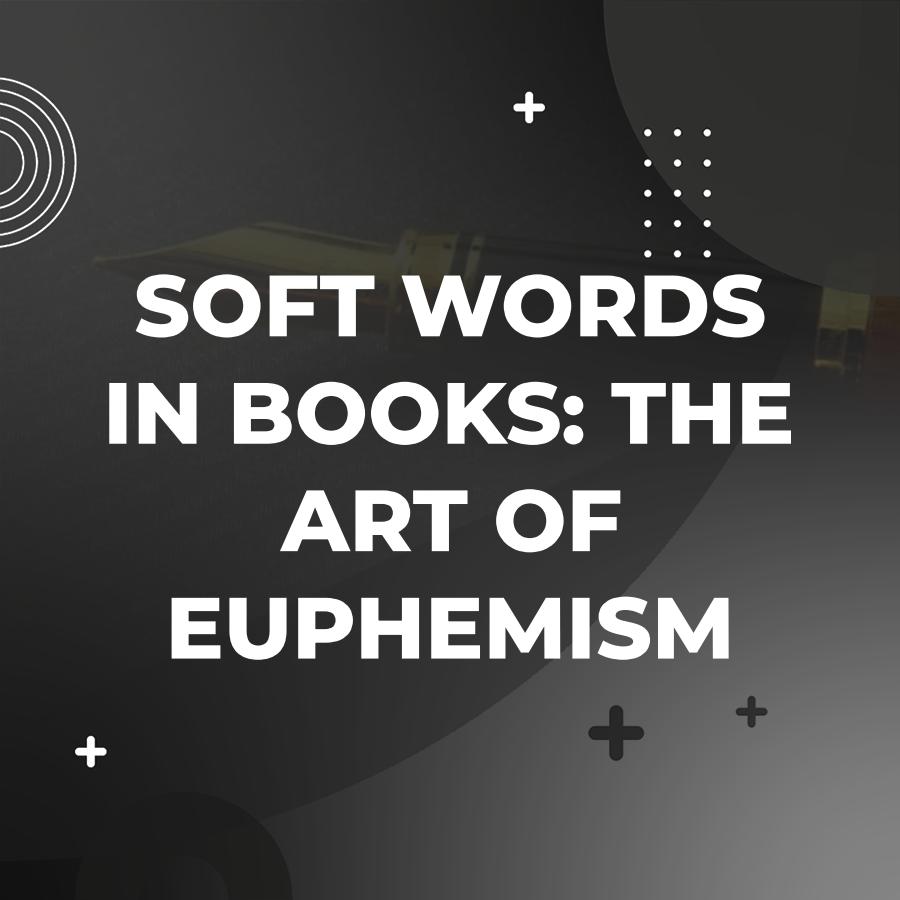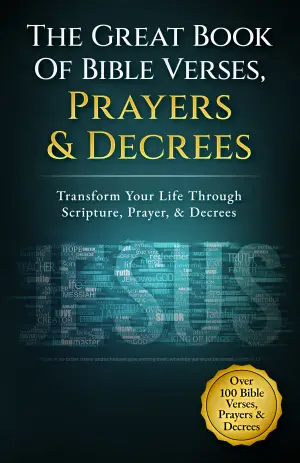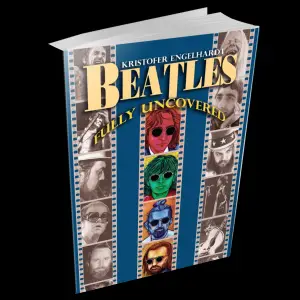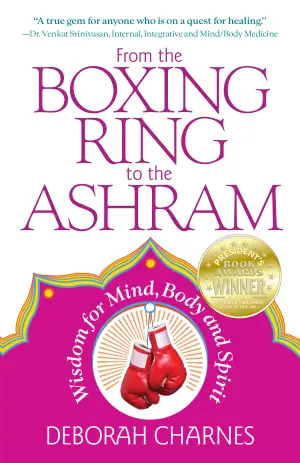Euphemisms serve a vital role in literature by softening uncomfortable truths and wrapping harsh realities in a light fabric of gentility. Their primary purpose is to replace direct or harsh language with more palatable phrases. This linguistic technique not only provides a way to address sensitive topics but also enhances the depth of character and dialogue in various literary works.
Table of Contents
What is Euphemism?
A euphemism is a word or phrase used to replace a term that may be considered harsh, blunt, or unpleasant. Instead of saying someone “died,” you might hear the words “passed away.” This substitution helps create an emotional buffer for difficult subjects. Depending on usage and tone, euphemisms trigger various emotional responses. Writers use them as strategic linguistic devices to handle difficult matters, adding layers of subtlety when describing characters or circumstances.
Euphemism vs. Dysphemism
It’s important to differentiate euphemism from its opposite, dysphemism, which employs offensive language. While euphemisms soften reality, dysphemisms amplify it. For instance, using terms like “cannon fodder” in literature can express the dehumanization of soldiers in war. In Tim O’Brien’s “The Things They Carried,” he artfully balances euphemism and dysphemism. While euphemisms like “bump off” exist to describe killing, O’Brien also uses more visceral language to convey the harsh realities faced by soldiers.
This strategic use of language serves to enhance readers’ understanding of the emotional weight of war, illustrating how euphemisms can lead the audience gently into deeper themes while still recognizing the grim realities through dysphemistic phrases.
The Role of Euphemism in Literature
Euphemism has played a significant role in literature across cultures and periods. From classic novels to modern poetry, it allows authors to confront challenging subjects, including death, war, or social taboos, in a way that respects their readers’ sensitivities. Countless literary works feature euphemisms to draw attention to the harsh realities of life without being too blunt.
Fiction and Character Development
In fiction, euphemisms can shape how readers perceive characters. For instance, in Jane Eyre by Charlotte Brontë, the character Bertha Mason is often referred to as “the madwoman in the attic.” Although this phrase may seem innocuous, it carries a weight of stigma and exclusion, illustrating how society perceives mental illness. Brontë’s use of euphemism here not only develops the character of Bertha but also hints at the Victorian-era attitudes toward mental health.
Consider a contemporary novel such as The Lovely Bones by Alice Sebold. The protagonist, Susie Salmon, is referred to as “missing” throughout much of the book. While this term is less jarring than saying she was murdered, it poignantly captures her family’s struggle to come to terms with her absence. This euphemism deepens the emotional impact of her tragic fate while preserving the reader’s engagement with the story.
Poetry and Potent Imagery
Poetry often employs euphemisms to convey complex emotions or themes succinctly. Take, for example, the poem “The Road Not Taken” by Robert Frost. Frost describes divergent paths as “the one less traveled by.” This euphemism for choice and its consequences adds layers to the interpretation of the poem. It creates a sense of nostalgia while allowing readers to reflect on decisions made without directly forcing them to face harsh feelings such as regret.
Euphemisms in poetry allow for a richness of language that can evoke emotional resonance. They empower poets to address profound themes like love, loss, and mortality while maintaining an aesthetic quality that may be lost in straightforward language.
Non-Fiction and Sensitivity
In non-fiction writing, particularly in genres that address personal stories or social issues, euphemisms can facilitate a more approachable tone. When discussing sensitive subjects such as addiction or disability, writers may choose phrases like “substance use disorder” instead of “drug addiction.” This shift acknowledges the complexity of these experiences without immediately alienating or stigmatizing readers affected by such issues.
The memoir Educated by Tara Westover provides a compelling example of a euphemism in action. Westover discusses her experience growing up in a strict, survivalist family, often using words like “unique” or “alternative” to describe her upbringing. This choice of language softens the harsh realities she faces, allowing readers to engage with her story on a more personal level while still reflecting on the challenges of her circumstances.
The Consequences of Euphemism
Clarity vs. Confusion
While euphemisms can help in sensitive situations, they aren’t without their pitfalls. Overuse or inappropriate use of euphemisms can lead to ambiguity. In George Orwell’s 1984, the term “Ministry of Peace” refers to the entity that oversees war. This contradictory phrasing is a deliberate euphemism intended to obscure reality and manipulate perception. Orwell’s example reflects the potential dangers of euphemism, illustrating how language can be wielded as a tool of oppression.
Cultural Context
Euphemisms often carry cultural weight and significance that must be considered in literature. What is seen as a delicate term in one culture might be considered trivial or even offensive in another. For example, the term “in the family way” may be used to refer to pregnancy in a narrative. In some cultures, this euphemism is acceptable and gentle. In contrast, in others, a direct mention of pregnancy may be preferred to avoid ambiguity or misunderstanding.
When writers create characters from different backgrounds, understanding the euphemisms specific to those cultures will strengthen realism and authenticity. Ignoring this cultural nuance can lead to misinterpretation or disengagement from readers who may find the language disingenuous.
Euphemisms Across Literature
Classic Literature Examples
Classic literature is rich with euphemisms that have both shaped narratives and reflected societal norms. Let’s consider Jane Austen’s Pride and Prejudice. In the story, the character Mr. Collins proposes his “affectionate admiration” in a typical send-up of romance. Instead of openly expressing love, he resorts to pompous language, demonstrating how euphemism can be used for comedic effect, showing the disparity between genuine feelings and societal etiquette.
Similarly, in Moby Dick by Herman Melville, the crew of the Pequod refers to their quest in euphemistic language. The hunt for the whale becomes a “pursuit of knowledge,” cloaking the dangers involved with a softer guise. This tactful wording changes the narrative’s tone, making the danger seem less immediate while emphasizing humanity’s complicated relationship with nature.
Contemporary Literature Examples
Modern authors also embrace euphemisms in their storytelling. In The Fault in Our Stars by John Green, the protagonist, Hazel Grace Lancaster, refers to her cancer treatments with terms like “special” or “meetings,” creating a nuanced framework for understanding her illness. These euphemisms allow for more intimate discussions around life, love, and mortality, something readers, especially young adults, can relate to without the overwhelming weight of direct terminology.
J.K. Rowling’s Harry Potter series also uses euphemisms effectively. The term “the dark arts” refers to all things sinister in a fanciful world. The choice of language allows readers to engage with darker themes while keeping the narrative family-friendly. This balance between darkness and light allows the story to be both thrilling and appropriate for a younger audience.
Euphemism in Dialogue
Dialogue is another area where euphemisms thrive. Characters often use euphemistic phrases in their conversations to navigate social norms. For instance, in David Mamet’s play “Glengarry Glen Ross,” characters often refer to fraud and deceit in euphemistic terms, such as “creative financing.” This approach allows Mamet to explore deep moral questions while keeping the tone light and engaging for the audience.
By examining how characters navigate sensitive topics through euphemisms, readers can glean insights into their personalities and the complexities of their circumstances. Characters who frequently employ euphemisms often present themselves as cautious or socially aware. Meanwhile, those who use blunt language may suggest a more abrasive or unapologetic personality.
Cultural Context and Euphemism
Euphemisms can shift in meaning based on cultural context. What may be considered a gentle euphemism in one culture could be seen as offensive in another. For example, Japanese writers commonly use the phrase “passing away” to signify death. This expression conveys respect toward the deceased and provides comfort for family and friends.
In contrast, in American literature, authors often choose euphemisms that reflect a fast-paced culture, opting for brevity that conveys the needed meaning without unnecessary embellishments. In this way, cultural nuances play an important role in how euphemisms are understood and applied.
The Power of Euphemism
Euphemism can also serve as a device to challenge power structures within literature. Authors may employ euphemisms as a form of resistance against censorship or oppressive regimes. For instance, George Orwell’s 1984 uses euphemistic slogans like “War is Peace” to illustrate the absurdities of totalitarian rhetoric. While the language sounds agreeable, it represents the manipulation of truth by those in power, making readers question the language they’re served in the real world.
This literary technique enriches the reading experience by pushing readers to examine their understanding of truth and the way language can shift meaning subtly. Readers become more analytical and gain deeper insight into the text.
Common Examples of Euphemisms in Literature
The literary tradition is filled with euphemisms that have become established in everyday language. Some of the most common include:
- “Passed away” instead of “died,” as seen in various works from Shakespeare to modern novels.
- “Let go” in place of “fired” is often found in corporate-themed literature.
- “Expecting” when discussing pregnancy is frequently used in novels exploring themes of family and relationships.
Each of these phrases serves to cushion the impact of the statement, demonstrating the lasting power of euphemism in navigating tough subjects within literature.
Using Euphemism Effectively
To use euphemisms effectively, writers should focus on context and audience. Consider which terms might resonate with readers while avoiding confusion or misunderstanding. For instance, if addressing sensitive topics like mental illness, consult a variety of sources to find terms that convey the intended meaning without the potential for stigma.
In academic or technical writing, euphemisms can help ease readers into complex theories or concepts. For example, instead of stating, “Our economy is in dire straits,” a writer might say, “Our economy is facing challenges.” This gentle framing helps prevent alarm and allows for a more constructive conversation.
Additional Information
Euphemisms are often overlooked but play a crucial role in literature.
- Historical Context: In literature, euphemisms have been used for centuries to address taboo subjects. For example, during the Victorian era, authors used euphemisms to navigate discussions about sex and death, as direct references were considered inappropriate.
- Character Development: Writers frequently use euphemisms to develop characters. A character who uses elaborate euphemisms might be portrayed as delicate or pretentious. Meanwhile, a character who speaks plainly can be seen as more grounded or honest.
- Plot Devices: Euphemisms can serve as plot devices that reveal hidden meanings. An author may describe a character’s death as “passing away” to soften the impact. However, this choice can also foreshadow the character’s important role later in the story.
- Cultural Sensitivity: Different cultures have their euphemisms, and authors often incorporate these to reflect authenticity. For example, in some cultures, death is referred to as “going to sleep,” which can reflect the community’s attitude toward mortality.
- Satirical Tools: Writers like George Orwell utilized euphemisms satirically to critique political language. In “1984,” phrases such as “ministry of war” being called the “ministry of peace” highlight how euphemistic language can manipulate reality and affect perception.
- Genre Specific: Euphemisms vary across genres. In romance novels, they may appear in the form of soft language describing intimate relationships, while in horror, they can mask the gruesomeness of violence to maintain suspense.
- Psychological Impact: Studies in psychology reveal how euphemisms can alter a reader’s emotional response. By using softer terms, authors can evoke sympathy or discomfort without resorting to graphic descriptions.
- Dialogue Realism: In realistic dialogue, characters often use euphemisms in everyday conversations. This mimicry of real speech adds depth to characters and makes dialogue relatable.
- Symbolism: Euphemisms can serve symbolic purposes in literature, representing larger themes. For example, referring to a prison as a “correctional facility” symbolizes society’s flawed attempt at rehabilitation rather than punishment.
- Intertextual References: Authors sometimes allude to other works through euphemisms, creating layers of meaning for readers who recognize the references. This technique enriches the reading experience and offers insights into the characters’ motivations.
Frequently Asked Questions (FAQs) Related to Example Of Euphemism In Literature
Q. What is a euphemism in literature?
A. A euphemism is a word or phrase used to replace another that may be considered harsh, blunt, or offensive. It softens the impact of the idea being expressed.
Q. Can you give an example of a euphemism in literature?
A. In Shakespeare’s “Hamlet,” the phrase “he’s gone to a better place” is often used to refer to death more gently.
Q. Why do authors use euphemisms?
A. Authors use euphemisms to address sensitive topics in a more palatable manner, allowing readers to engage with intense subjects without discomfort.
Q. Are euphemisms always used in a serious context?
A. No, euphemisms can also be employed humorously. For instance, saying someone “kicked the bucket” adds a lighter tone to the discussion of death.
Q. How do euphemisms affect character development?
A. Euphemisms can reveal a character’s personality, values, or social status. A character who uses elaborate euphemisms might be seen as polite or pretentious.
Q. Can you mention a famous author known for using euphemisms?
A. George Orwell, in “1984,” uses euphemisms like “Ministry of Truth” to demonstrate the deceptive nature of government language and control.
Q. Are euphemisms found in poetry as well as prose?
A. Yes, poets often use euphemisms to convey complex emotions or themes concisely, preserving the poem’s rhythm and tone.
Q. How can euphemisms create ambiguity in literature?
A. Euphemisms can obscure the true meaning of what is being said, leading to multiple interpretations and adding layers to the text.
Q. Is there a downside to using euphemisms in writing?
A. Yes, excessive use of euphemisms can make writing confusing or insincere, as readers may struggle to understand the actual message.
Q. How can readers identify euphemisms in a text?
A. Readers can identify euphemisms by looking for phrases that seem to soften or alter the meaning of more direct language, often relating to taboo or sensitive topics.
Conclusion
Euphemism in literature serves as a powerful tool, allowing authors to address sensitive topics while maintaining a level of decorum. By using softer language, writers can engage readers without turning them away from difficult subjects. From classic works to contemporary novels, euphemisms enhance storytelling, invite reflection, and often add layers of meaning to the text. Recognizing these literary devices sharpens the reader’s awareness and increases comprehension of underlying ideas in the text. So, the next time you encounter a euphemism, give it a moment of thought—it might just reveal a deeper insight into the story.







